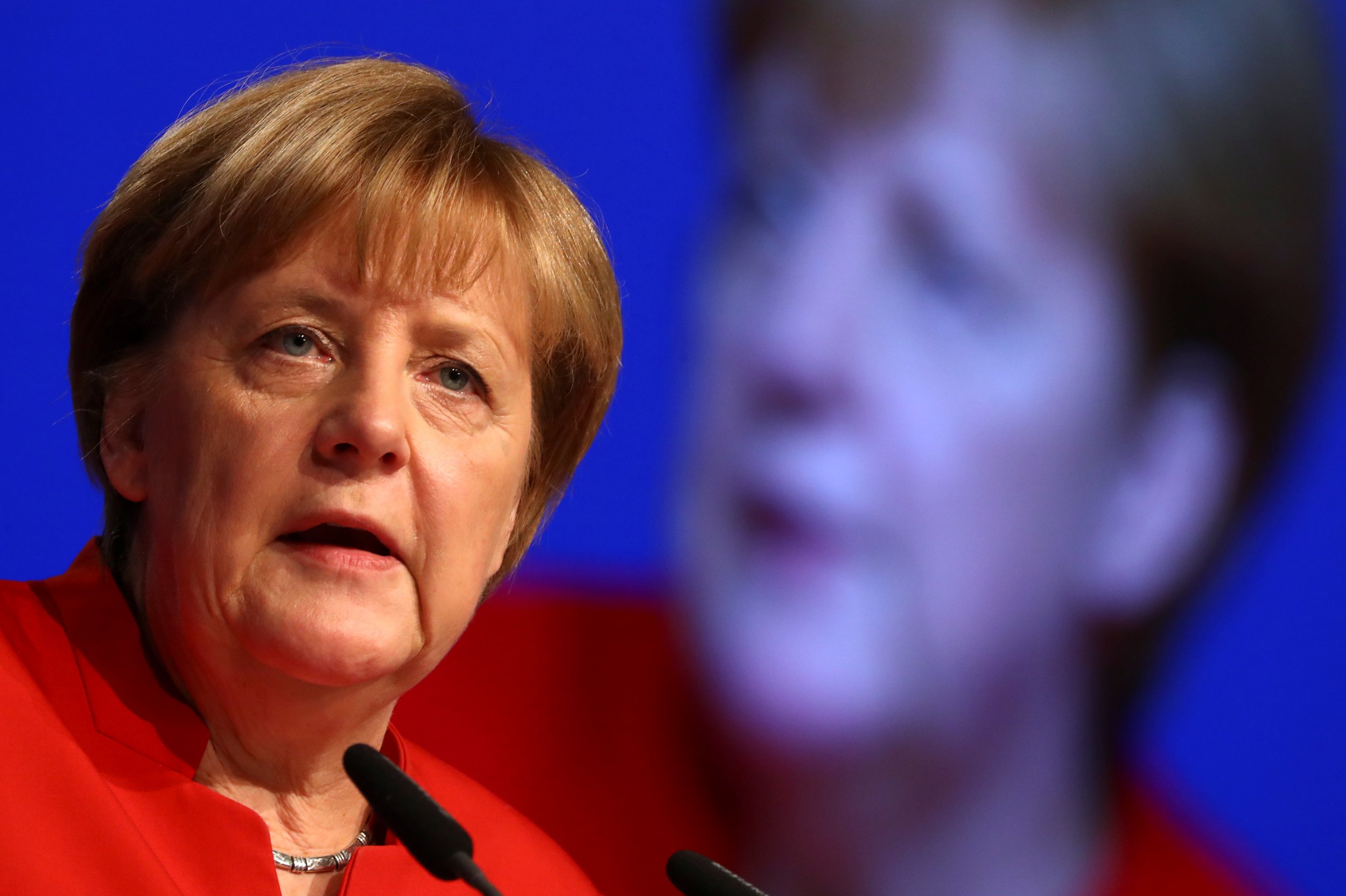
Nations in Europe, where Germany and France this year hold elections, are erecting defenses to counter possible Russian cyber attacks and disinformation to sway Western politics, but intelligence experts say this might be too little and too late.
The issue of Russian "influence operations" has taken on new urgency after U.S. intelligence agencies released a non-classified assessment that President Vladimir Putin ordered a campaign to move the U.S. election in favor of Donald Trump.
European nations and NATO are setting up centers to identify "fake news", bolstering cyber defenses and tracking use of social media which target Russian-speaking communities, far-right groups, political parties, voters and decision-makers.
Russia denies cyber warfare and Internet campaigns targeting Western governments. Kremlin watchers say affecting the U.S. election could bring reward for Moscow, while stakes would not be so high in German and French elections.
German intelligence officials, however, say there has been Russian support for euroskeptic, anti-immigrant parties in Germany and across the EU. Chancellor Angela Merkel said she could not rule out Russia interfering in this year's election.
"We can't exclude that operations of the same nature seen in the United States aim to disturb the French electoral system," France's Defence Minister Jean-Yves le Drian said in a recent interview. "I urge everyone to install the greatest vigilance."
One senior European Union official, who declined to be named, said there was no doubt Moscow would bolster far-right and populist parties in elections across Europe in 2017. The official cited the triggering of a resounding "No" given to the EU planned association treaty with Ukraine in a Dutch vote.
"We see disinformation attacks before every vote that is of interest for the Kremlin," a second EU source said. "Very often the vote that follows ... turns out in favor of the Kremlin."
State-sponsored television station Russia Today, active and expanding across Europe, plays a key role, but Moscow uses a range of avenues, including social media, as well as backing for non-governmental groups, Western intelligence experts say.
Off Guard, Mix of Methods
Stefan Meister of the German Council on Foreign Relations said German intelligence agencies had been caught off guard.
"We have a whole mix of activities that neither the intelligence services nor the politicians can completely understand and categorize," he said. "They're just starting to understand it and find solutions."
The EU foreign service is slated to expand a 30-person strategic communications office set up in March 2015 to counter what it sees as fake news and Russian campaigns for influence.
The second EU source said the effort was "a badly under-funded, tiny team with close to no support", and added Brussels did not see Russian intervention as a priority.
Individual members are now setting up their own offices to monitor and respond to disinformation, including the Czech Republic, which set up a 20-member team on January 1.
Berlin is considering an office to evaluate fake news, but that effort has already run into political concerns that the government is setting up a "truth ministry" that would limit free speech or influence national elections.
German intelligence cited the high-profile case of a German-Russian girl who Russian media said was kidnapped and raped by migrants in Berlin, a claim later refuted by German authorities. The case underscored mutual suspicion between Moscow and Berlin.
Some other countries banned Russian-language television from broadcasting for spreading disinformation or inciting hatred. Lithuania, Latvia, Britain, Estonia and Denmark have also urged the EU to create news sources for Russian speakers.
In Latvia, facing municipal elections in June, officials cite a barrage of propaganda aimed at 500,000 Russian speakers and a cooperation agreement between the pro-Russian opposition party Harmony with Putin's United Russia party.
Lithuania this week said it had barred construction of a data center for cloud computer operations last year over concerns it could be infiltrated by Russian intelligence once it was connected by fiber-optic cable to Russia.
Solvita Aboltina, head of the national security committee in the Latvian parliament and a key national security adviser to the Latvian president, said the threat of cyber attacks was far greater than the risk of a military invasion.
"This a very important and urgent question on the agenda," she said. "The American election is clear proof of that."
NATO Worries
Outside the political arena, there are worries in defense circles about the activities of hackers loyal to Putin, himself a former spy chief. NATO says it has seen a five-fold increase in suspicious events on its networks in the past three years.
German officials say a hack in December of the Organisation for Security and Cooperation in Europe (OSCE) used methods seen in a 2015 hack of the German parliament that was linked to APT28, a Russian hacker group, blamed for U.S. election hacks.
"We are already at war, and for many years," Darius Jauniskis, head of Lithuania's counter-intelligence State Security Department told Reuters in an interview.
Cyber security is a pressing concern for NATO, whose ambassadors discussed specific fears raised by Germany about Russian election interference in December, two diplomats said.
France and Germany recently set up cyber warfare units, and NATO officials have told Reuters they suspect Russia sponsors attacks against their networks before key summits.
Uncommon Knowledge
Newsweek is committed to challenging conventional wisdom and finding connections in the search for common ground.
Newsweek is committed to challenging conventional wisdom and finding connections in the search for common ground.
About the writer
To read how Newsweek uses AI as a newsroom tool, Click here.








